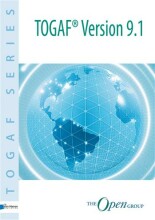Summary: International Economic Relations
- This + 400k other summaries
- A unique study and practice tool
- Never study anything twice again
- Get the grades you hope for
- 100% sure, 100% understanding
Read the summary and the most important questions on International Economic Relations
-
Lecture 1 - Rise of the global economy
This is a preview. There are 13 more flashcards available for chapter 30/04/2020
Show more cards here -
Define why is this course important? (3 points)
- Active Economic citizenship.
- The economy is very much influenced by political decisions.
- Economics /= a force of nature or an inevitable outcome of history.
"95% of economics is common sense made complicated". - Active Economic citizenship.
-
The choice for globalisation: its history. Industrial revolution, 19th century. Important discovery steam engine. Who are the thriving individuals behind Liberalism? (3 people)
- Adam Smith (Wealth of Nations).
- David Ricardo (Comparative advantage).
- John Stuart Mill (Utilitarianism).
- Adam Smith (Wealth of Nations).
-
Why did Thomas Carlyle label economics a dismal science?
- It was the discipline's assumption that people are basically all the same and thus entitled to liberty that led Carlyle to label the study of economics the dismal science.
The connection was so well known throughout the 19th century, that even cartoonists would refer to it knowing that their audience would understand the reference. - It was the discipline's assumption that people are basically all the same and thus entitled to liberty that led Carlyle to label the study of economics the dismal science.
-
What important discoveries were made during the Second Industrial Revolution? (1870-1914):
- Scientific revolution.
- Telegraph.
- Telephone.
- Motorisation.
- Scientific revolution.
-
Utility is the satisfaction or benefit derived by consuming a product. Define the concept of Marginal utility:
Marginal utility is the change in the utility from an increase in consumption of that good or service. -
Economic theories based on rational choice usually assume that consumers will strive to maximize their utility. To maximize it's utility. What does the consumer strive to?
- The customer strives towards the smallest price possible but with the best value possible.
-
Great Depression 1930's.An important economist thrived during these years.Who?
- John Maynard
Keynes .
- John Maynard
-
What kind of questions does Robert Heilbroner describes in his book: "The Worldly Philosophers"?
- The book
concerns questions like: - "How is
wealth created?" - "How is it
distributed among society?" - "What should the role of the different actors be like?"
- The book
-
Adam Smith (1723-1790). Father of economic thought - he was a moral philosopher (not an economist as in the current sense of the word). Wrote the book: The Wealth of Nations (1776). A market is a mechanism not a physical place. Adam Smith had three important economic values:
- Liberty.
- Justice.
- Benevolence (the will to do good).
- Liberty.
-
Karl Marx (1818-1883). Associated with communist regimes (Soviet Union, China) but Marx himself was never a government appointee. Define Communism:
- A political and economic doctrine that aims to replace private property and a profit-based economy with public ownership and communal control of at least the major means of production and natural resources of a society.
- Higher grades + faster learning
- Never study anything twice
- 100% sure, 100% understanding

































